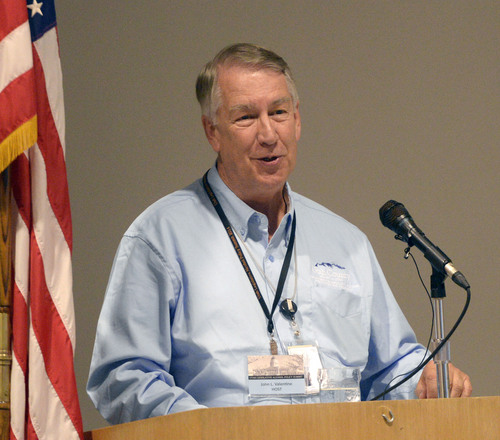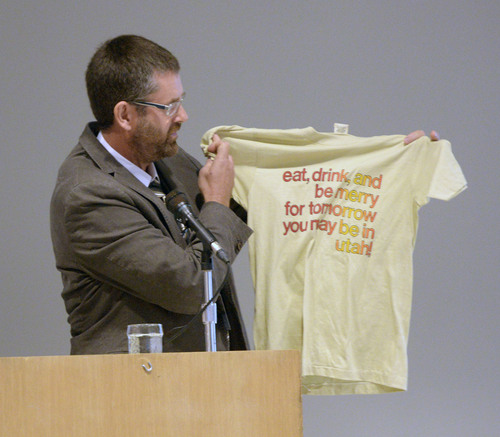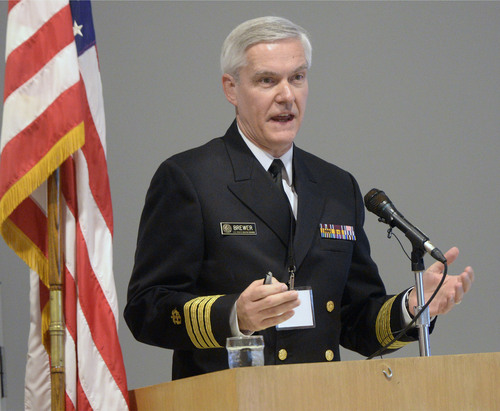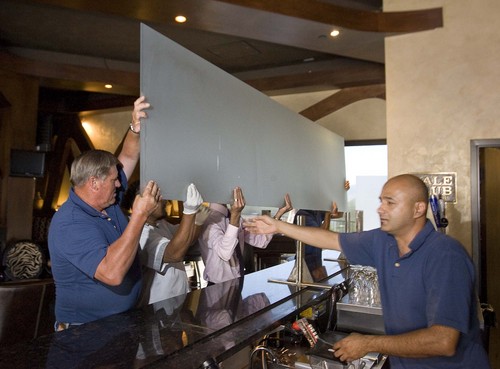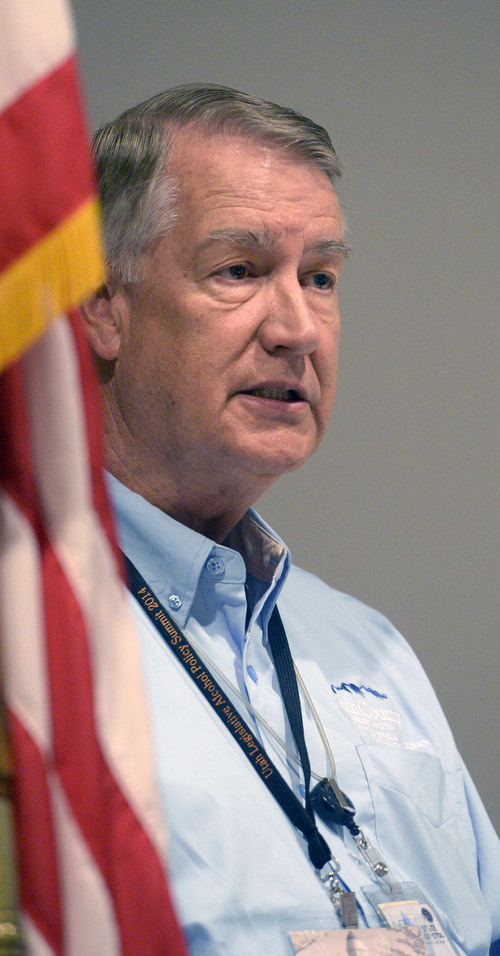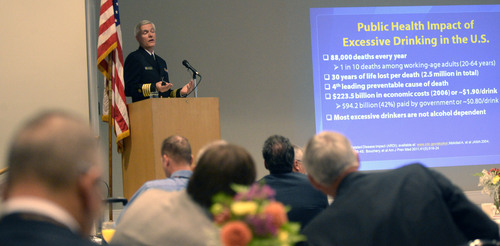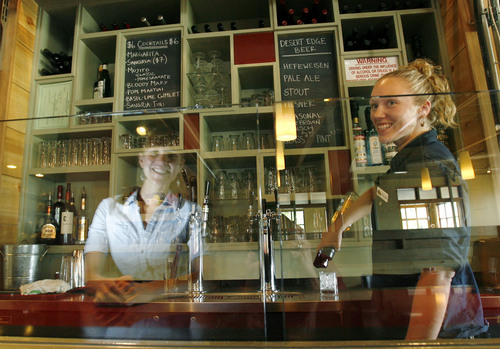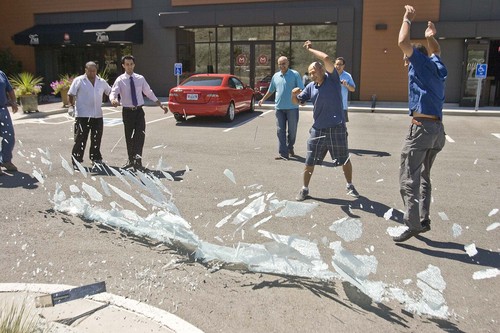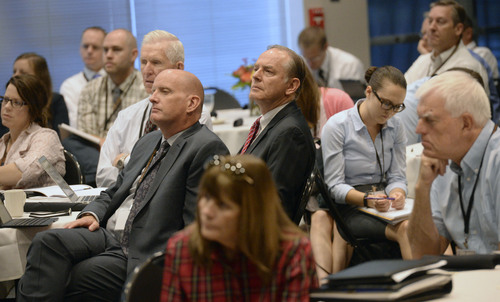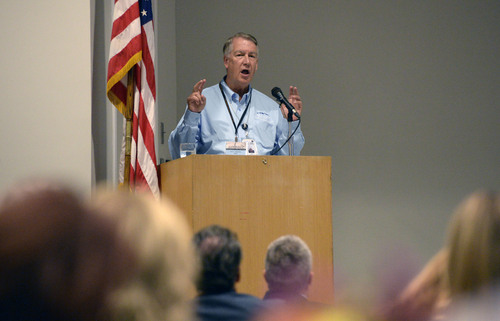This is an archived article that was published on sltrib.com in 2014, and information in the article may be outdated. It is provided only for personal research purposes and may not be reprinted.
As Sen. John Valentine, R-Orem, leaves the Legislature to head the Utah State Tax Commission, he expressed one alcohol policy regret: not making all Utah restaurants have a Zion Curtain.
"I made a mistake," Valentine, the major force over the past decade in shaping Utah liquor laws, said Thursday. During the 2009 liquor law debates, "I should have bitten the bullet and given existing restaurants a certain amount of time to comply with the law."
Instead, he allowed existing restaurants to go without the 7-foot barriers designed to prevent patrons from seeing alcoholic drinks being mixed or poured by employees. Under the law, only new restaurants must follow the requirement.
The inconsistency has caused confusion among consumers and is something lawmakers should address, Valentine said during the opening session of the Utah Legislative Alcohol Policy Summit at the State Capitol.
"Doing away with the grandfather clause and resolving the issue of the preparation area is a proposition for the future," he said, noting that it won't be easy.
"It's always going to be important to consider a balance between the societal effects of alcohol and our ability to be hospitable," he said. "The equation has to have a balance."
Another lawmaker will have to lead the way, as Valentine is leaving after more than 25 years in the Legislature. He told the group that his speech was likely one of his last acts as a state senator.
Valentine, a tax attorney, is probably best known for his role in shaping Utah's liquor laws. He worked with then-Gov. Jon Huntsman to get rid of Utah's law requiring bars to technically be private clubs, requiring memberships, and sponsored reforms allowing resorts to operate multiple locations with a single license and permitting liquor licenses to be sold.
But he has taken a tough stand when it comes to liberalizing Utah's alcohol laws, most notably resisting attempts to privatize Utah's government-run retail liquor stores and doing away with the so-called Zion Curtain.
Melva Sine, president of the Utah Restaurant Association, said she hopes that lawmakers don't try to make all restaurants add a barrier. They'll face the same arguments that occurred in 2009.
"It would cause an undue financial burden," she said. "That's why they created the grandfather clause."
But she did call for more consistency, which is why her association and tourism officials have pushed for several years to repeal the barrier requirement for all restaurants.
"All restaurants need to operate at an international standard of hospitality," said Sine, one of about 100 people who attended the one-day summit that brought together lawmakers, public-health officials and other policymakers to discuss the risks and benefits to changing Utah's alcohol policies.
Sponsored by the Utah County Department of Drug and Alcohol Prevention and the Sutherland Institute, the workshops included a range of speakers including representatives from the World Health Organization, the Centers for Disease Control and Prevention, the Presidents' Forum of the Distilled Spirits Industry and the National Beer Wholesalers Association.


